Sale 2549 - Lot 29
Additional Images
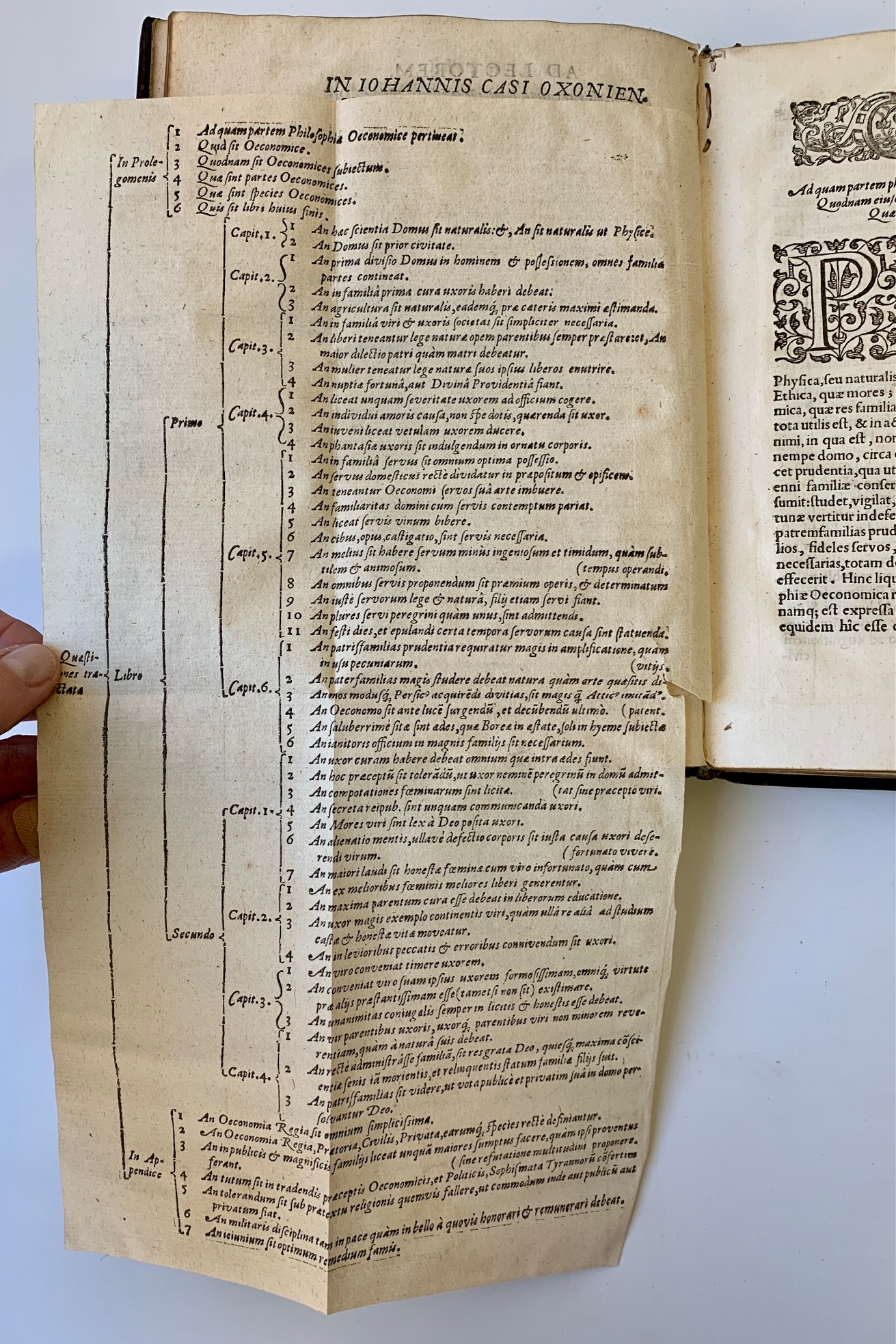
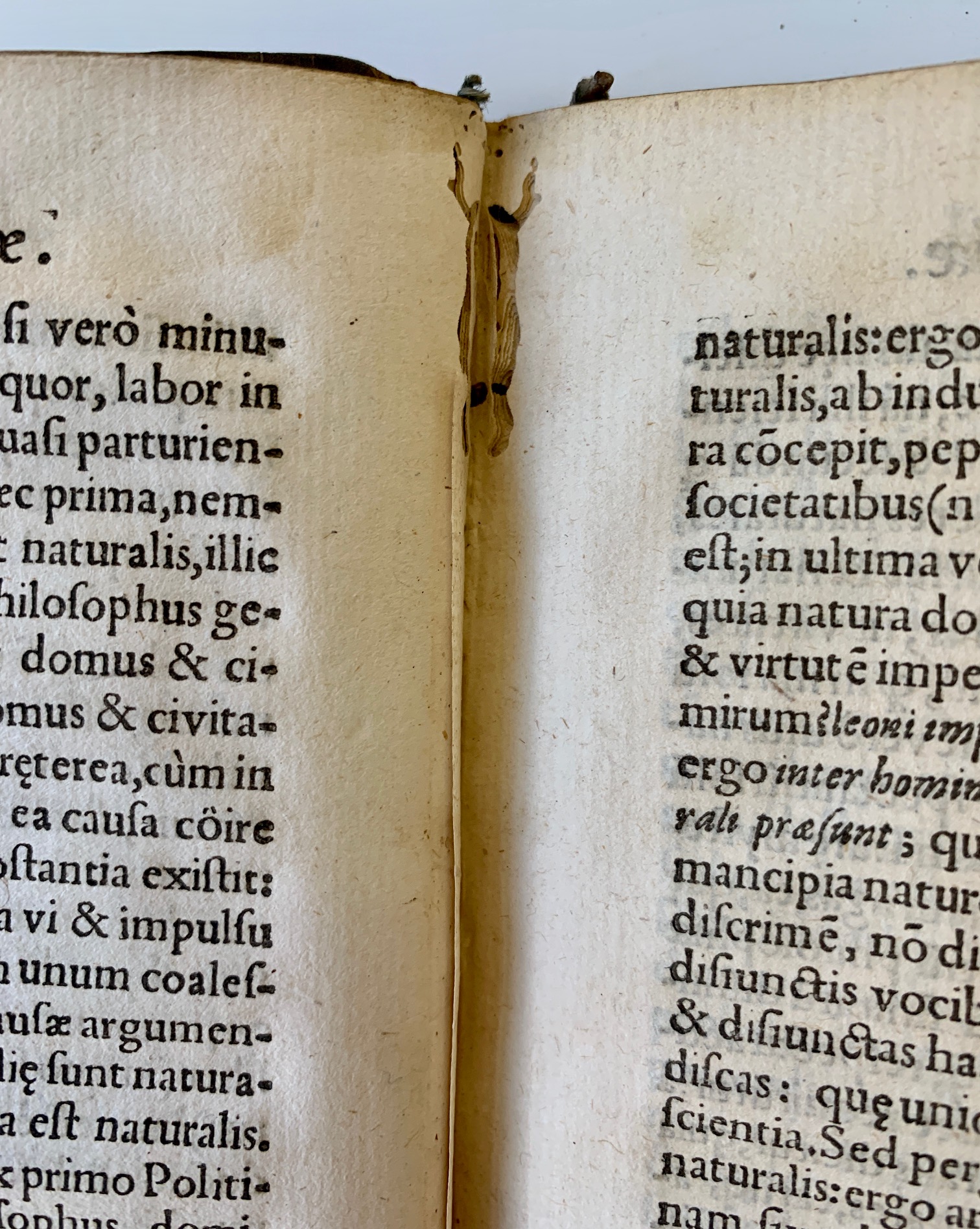
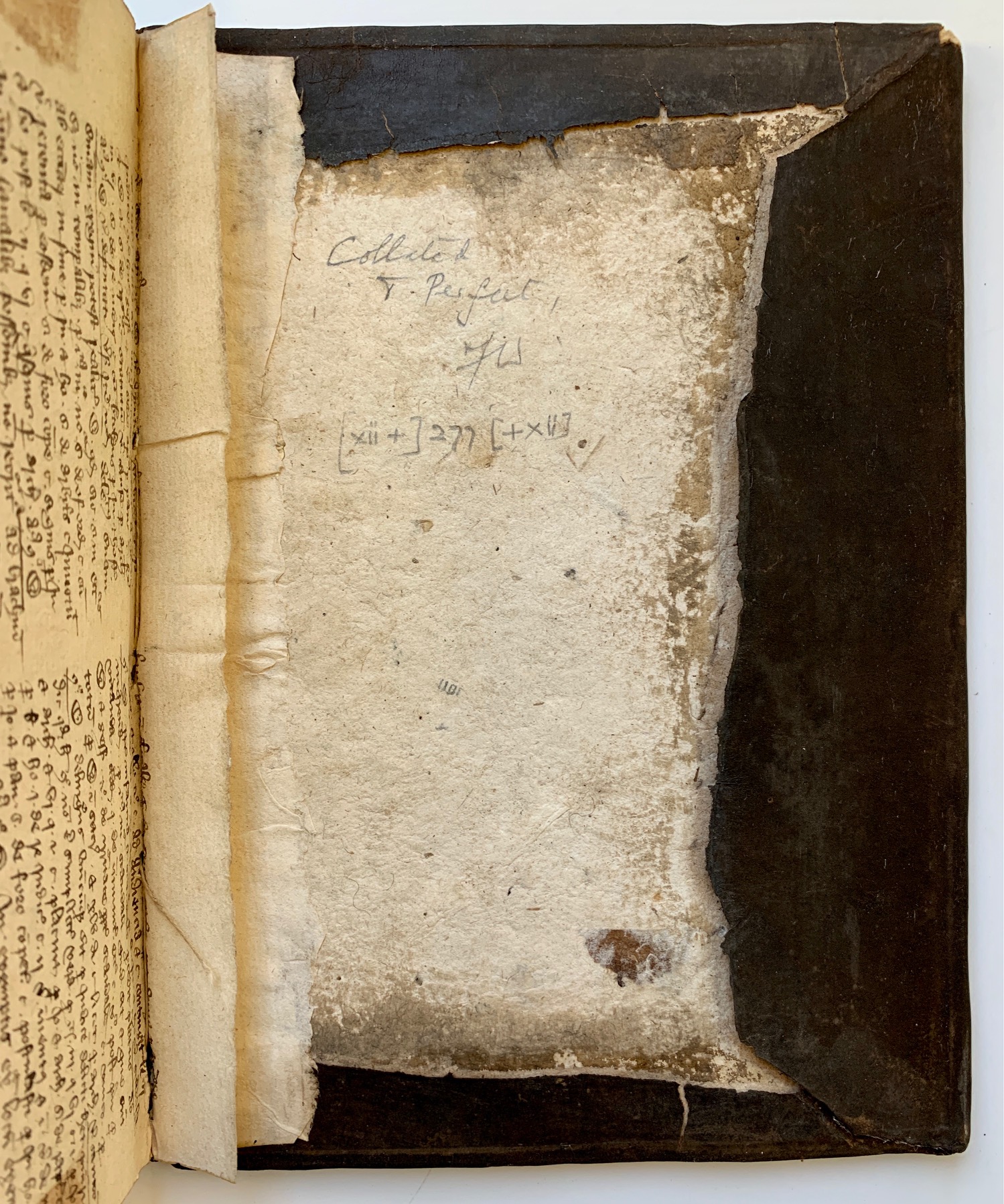
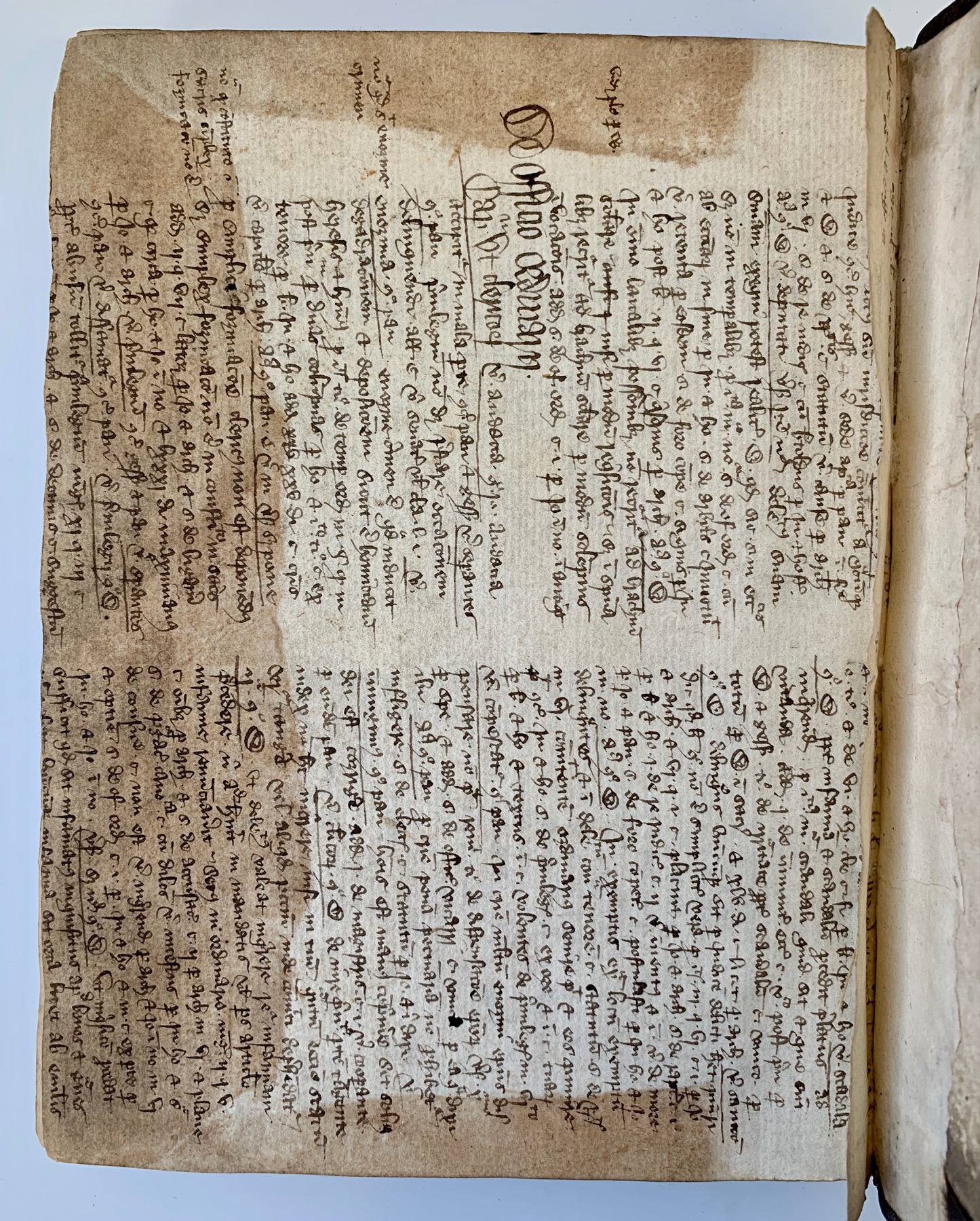
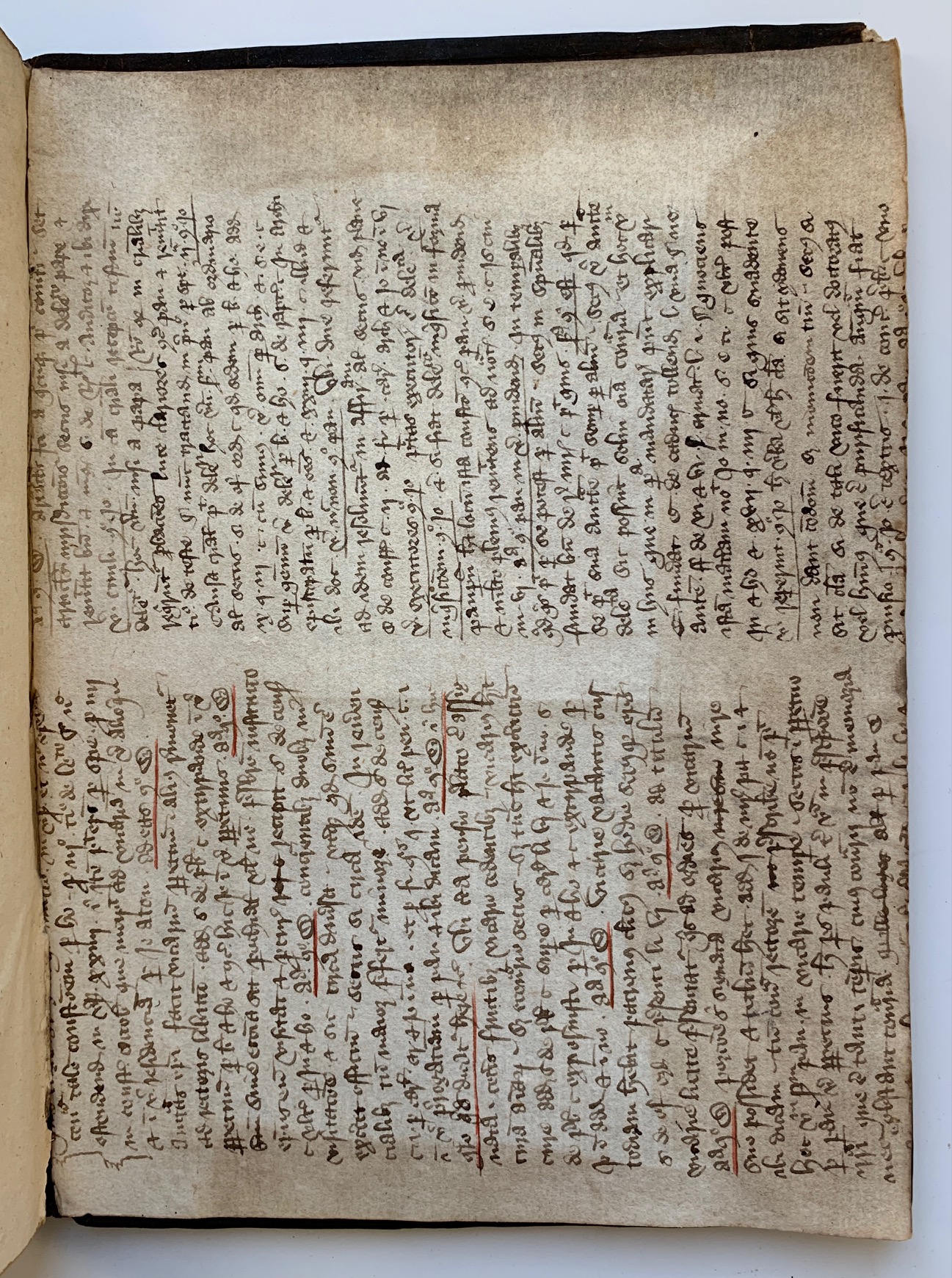
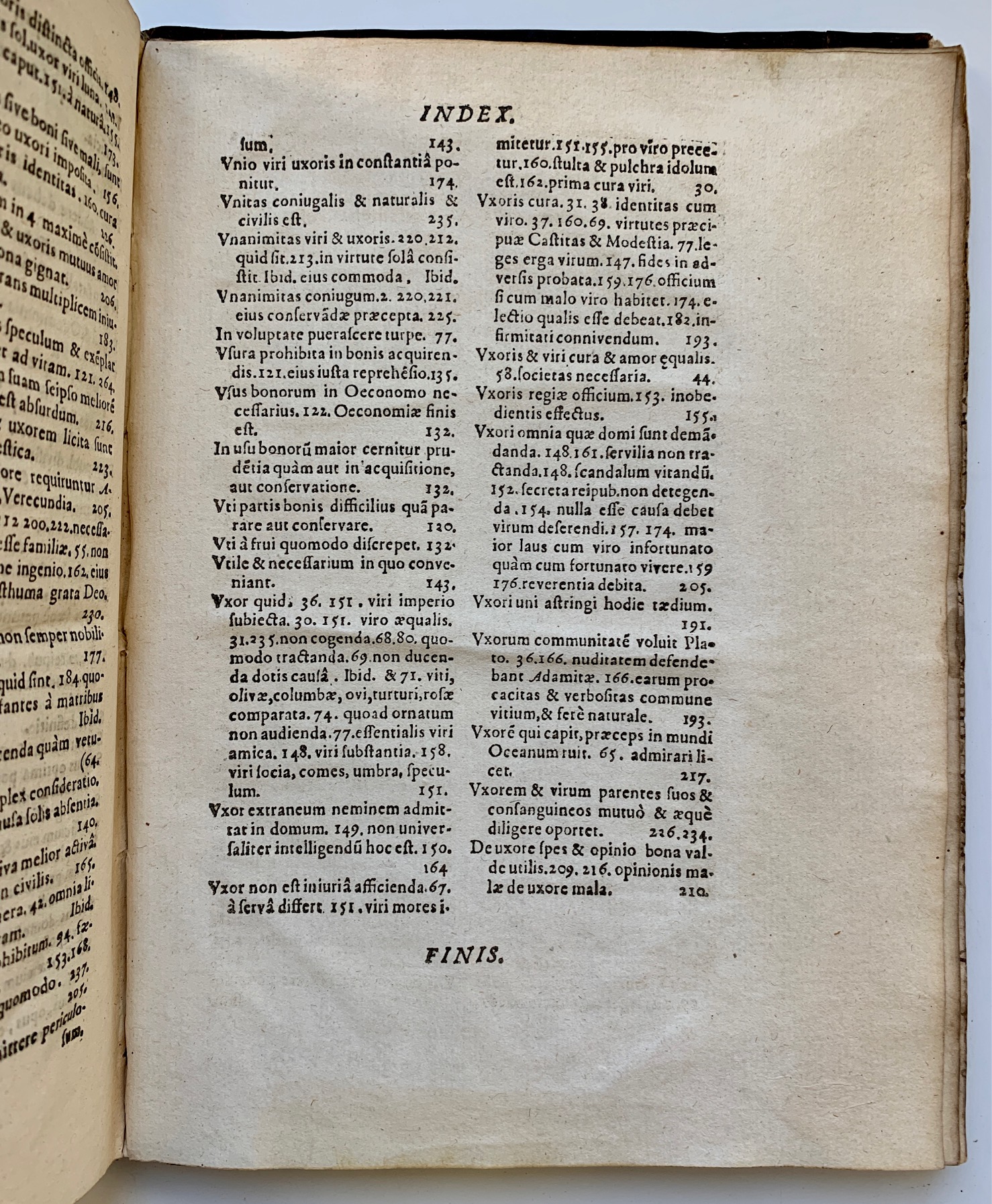
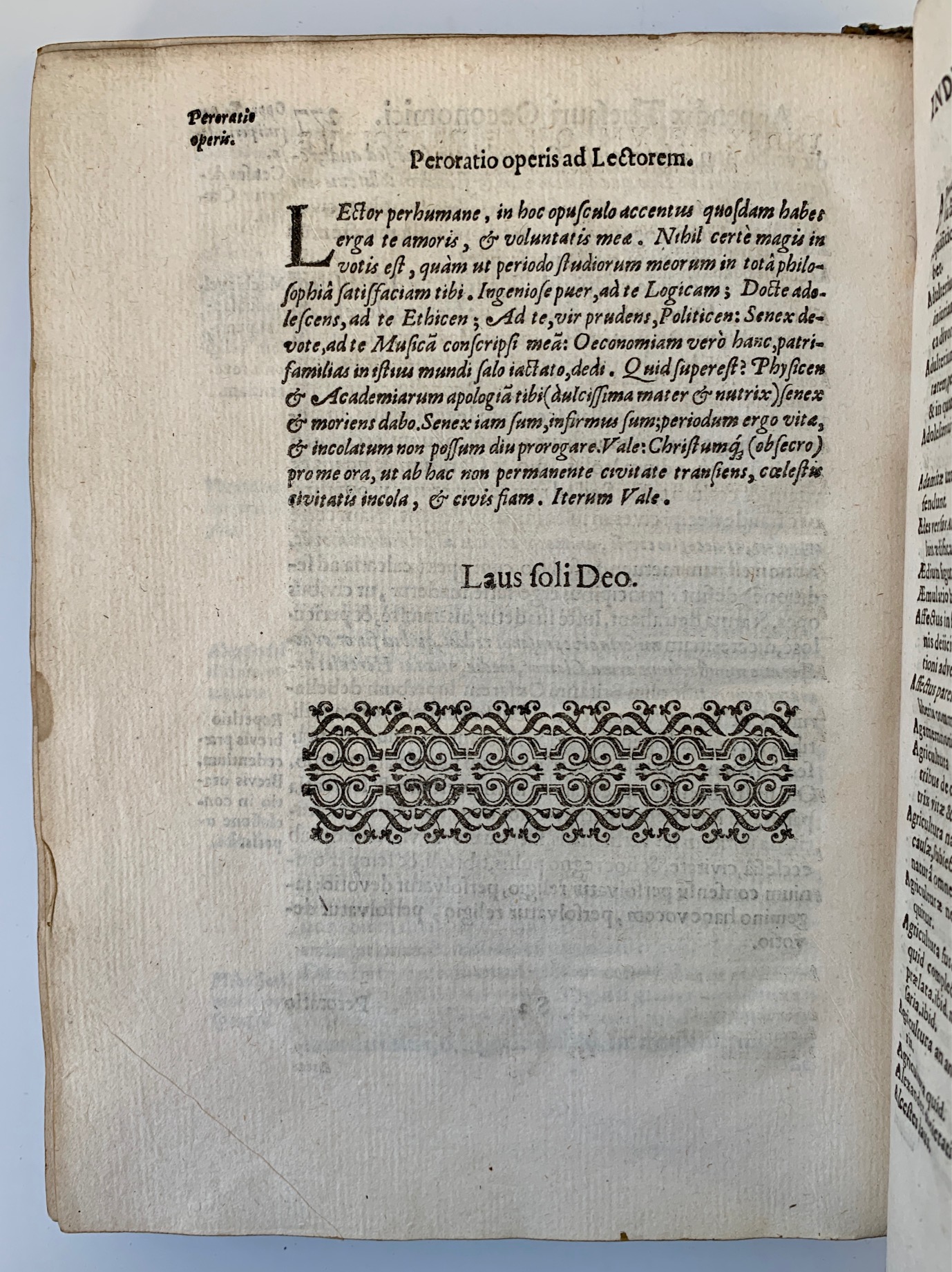
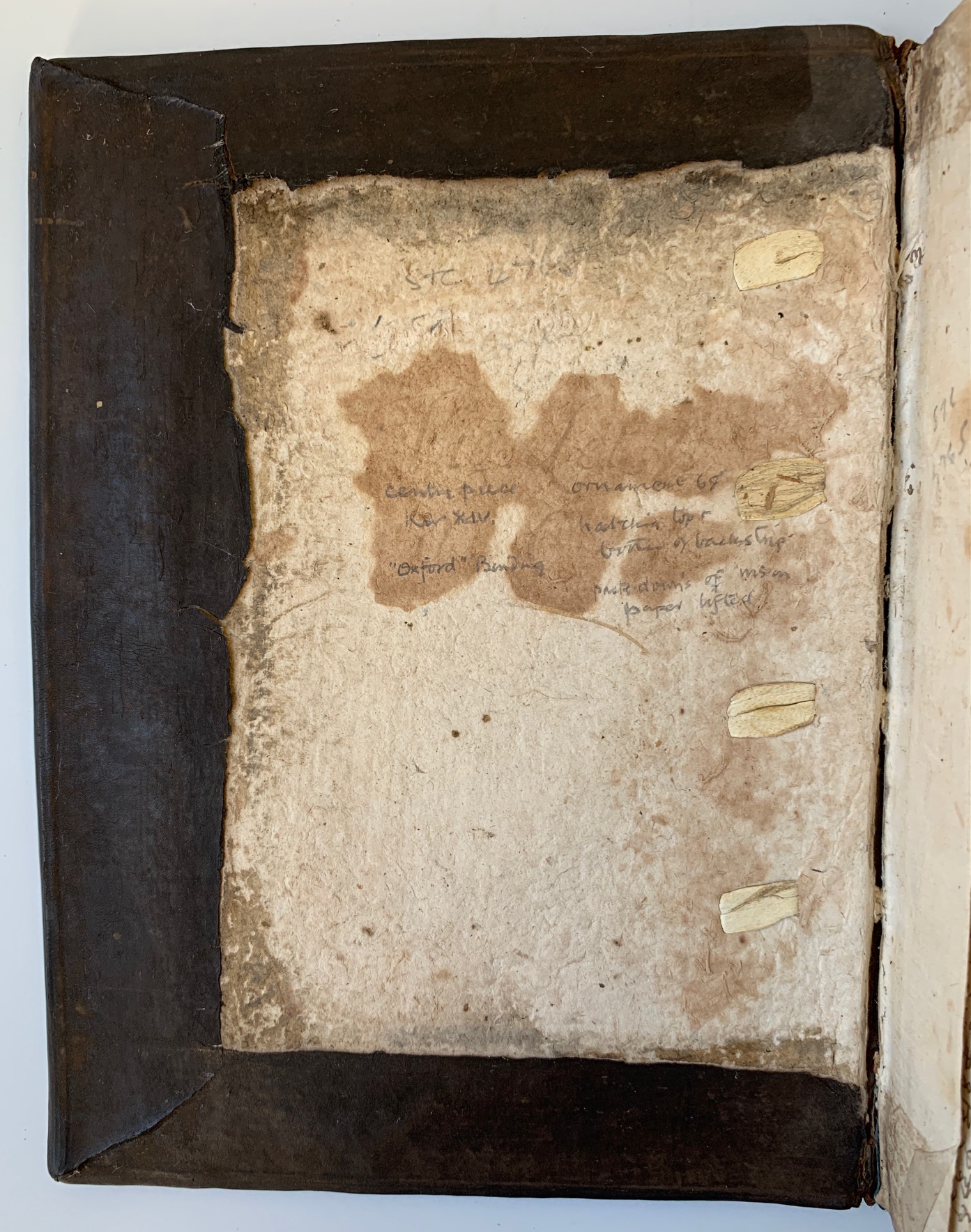
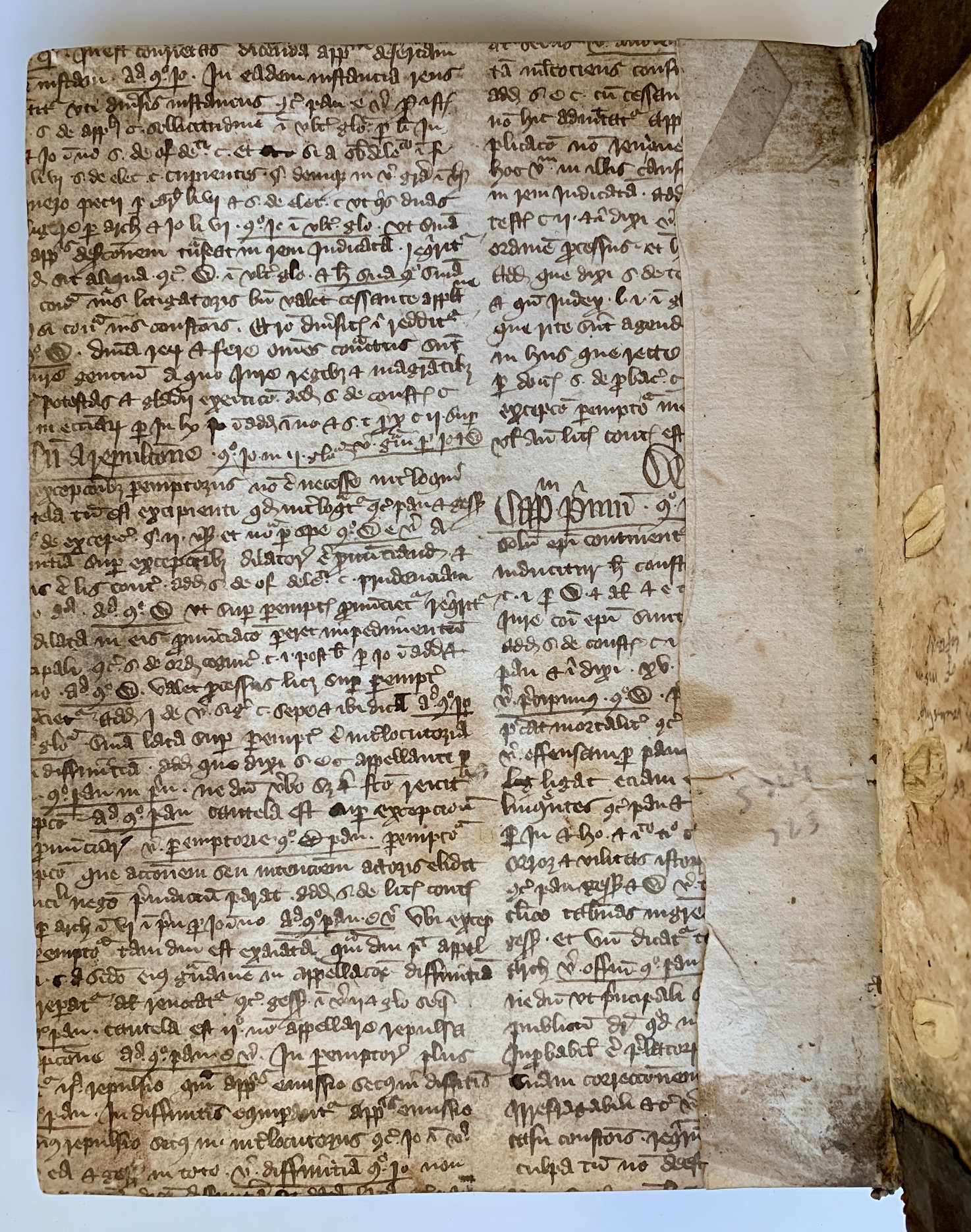
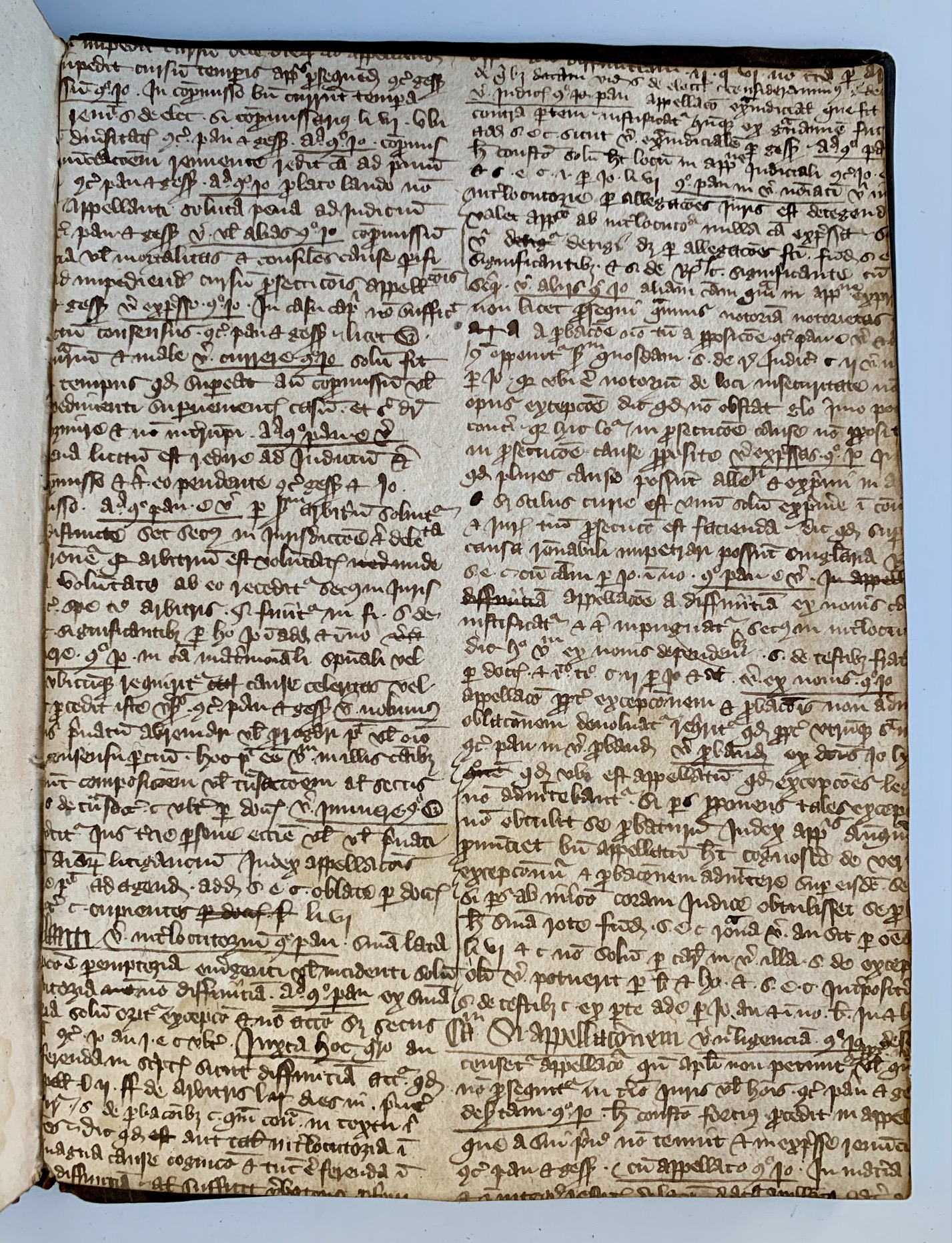
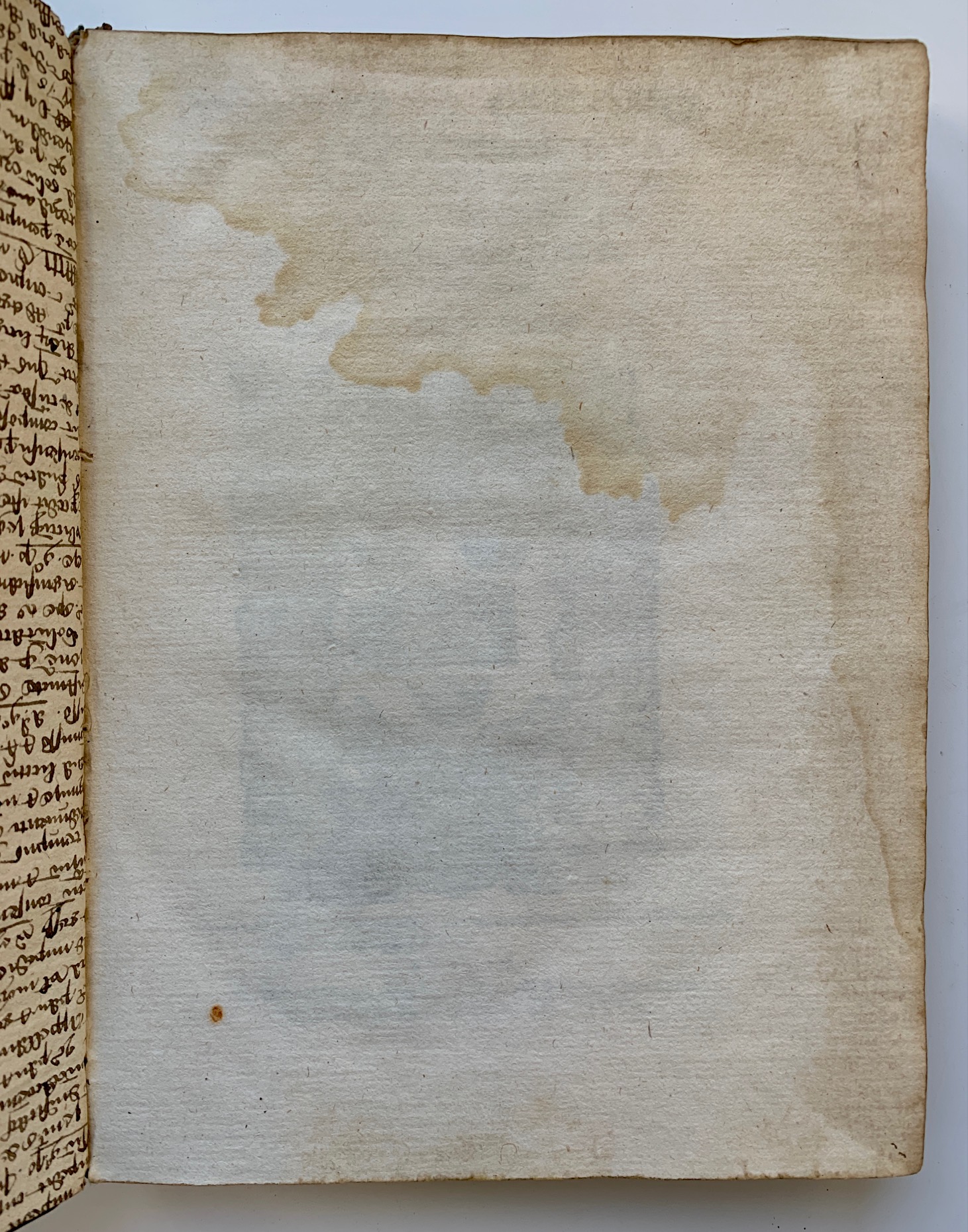
11











Sale 2549 - Lot 29
Estimate: $ 2,500 - $ 3,500
Case, John (d. 1600)
Thesaurus Oeconomiae, seu Commentarius in Oeconomica Aristotelis.
Oxford: Ex officina typographica Iosephi Barnesij, & veneunt Londini [by Joan Broome] in Coemiterio D. Pauli, ad insigne Bibl., 1597.
First and only edition, quarto, ¶4, ¶¶2, A-R8, S-T4; typographically printed folding table bound before A1; bound in full contemporary blind-tooled dark Oxford calfskin, large central ornament blocked onto front and back boards within blind-ruled panel with small tools at each corner, characteristic diagonal blind lines over kettle stitches on spine and on board edges adjacent to spine; earlier English manuscript on paper used as flyleaves, front and back; some worming and light waterstaining, a good survival, 7 3/4 x 5 3/4 in.
STC 4765; ESTC S107585; http://estc.bl.uk/S107585; rare, four copies in U.S. libraries; no copies at auction.
This pseudo-Aristotelian treatise on household management is interspersed throughout with Case's neo-scholastic debate, reframing an ancient text within an early modern British context. Because themes of home, gender roles, and love relationships are central, details of marriage and women's lives are revealed. A consistent anti-Machiavellian bent characterizes Case's commentary, but he also invokes the poets, including Sir Philip Sidney. His opinions on the status of women near proto-feminism.
"[With] its sophisticated views of the role of imagination and representation in marriage, its forceful insistence on marriage as a concord based on virtue and consent, and its consistent picture of wedlock as a corporate rather than an individualistic institution, the Thesaurus Oeconomiae is in both intellectual and emotional terms the most complex analysis of marriage that any early modern English writer produced. " (Robert S. Knapp, "'Is it appropriate for a man to fear his wife?': John Case on Marriage," published in English Literary Renaissance, Vol. 28, No. 3, Studies in Gender Relations (Autumn 1998), pp. 387-415. University of Chicago Press.) https://www.jstor.org/stable/43447770
Thesaurus Oeconomiae, seu Commentarius in Oeconomica Aristotelis.
Oxford: Ex officina typographica Iosephi Barnesij, & veneunt Londini [by Joan Broome] in Coemiterio D. Pauli, ad insigne Bibl., 1597.
First and only edition, quarto, ¶4, ¶¶2, A-R8, S-T4; typographically printed folding table bound before A1; bound in full contemporary blind-tooled dark Oxford calfskin, large central ornament blocked onto front and back boards within blind-ruled panel with small tools at each corner, characteristic diagonal blind lines over kettle stitches on spine and on board edges adjacent to spine; earlier English manuscript on paper used as flyleaves, front and back; some worming and light waterstaining, a good survival, 7 3/4 x 5 3/4 in.
STC 4765; ESTC S107585; http://estc.bl.uk/S107585; rare, four copies in U.S. libraries; no copies at auction.
This pseudo-Aristotelian treatise on household management is interspersed throughout with Case's neo-scholastic debate, reframing an ancient text within an early modern British context. Because themes of home, gender roles, and love relationships are central, details of marriage and women's lives are revealed. A consistent anti-Machiavellian bent characterizes Case's commentary, but he also invokes the poets, including Sir Philip Sidney. His opinions on the status of women near proto-feminism.
"[With] its sophisticated views of the role of imagination and representation in marriage, its forceful insistence on marriage as a concord based on virtue and consent, and its consistent picture of wedlock as a corporate rather than an individualistic institution, the Thesaurus Oeconomiae is in both intellectual and emotional terms the most complex analysis of marriage that any early modern English writer produced. " (Robert S. Knapp, "'Is it appropriate for a man to fear his wife?': John Case on Marriage," published in English Literary Renaissance, Vol. 28, No. 3, Studies in Gender Relations (Autumn 1998), pp. 387-415. University of Chicago Press.) https://www.jstor.org/stable/43447770





